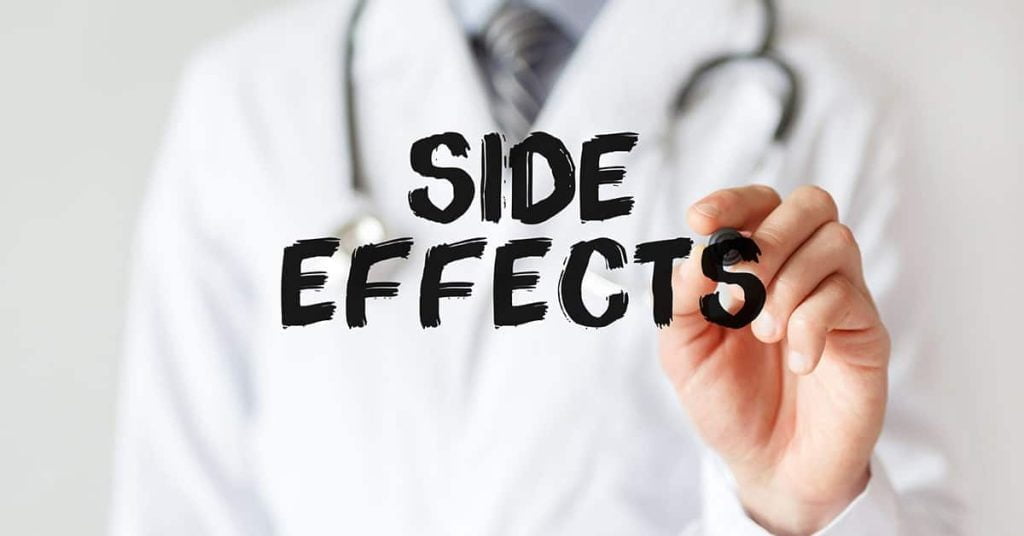## Understanding Bystolic Side Effects
Bystolic, generically known as nebivolol, is commonly prescribed to manage [high blood pressure](https://bridgecanhealth.com/blood-pressure-medications/) and hypertension. As a beta-blocker, Bystolic works by inhibiting specific neurotransmitters, particularly epinephrine and norepinephrine, which are known to elevate blood pressure.
Although Bystolic is generally effective for hypertension control, it may lead to various side effects. This article explores some of the common side effects linked to Bystolic.
### Common Side Effects of Bystolic
**Fatigue and Dizziness**
A prevalent side effect of taking [Bystolic](https://bridgecanhealth.com/prescription-drugs/bystolic/) is fatigue, often accompanied by dizziness. This occurs due to the medication’s impact on the cardiovascular system, reducing heart rate and blood pressure, which can cause lightheadedness and tiredness.
**Nausea and Stomach Upset**
Stomach-related issues like nausea, indigestion, bloating, and vomiting are also possible side effects of Bystolic. These symptoms can be particularly bothersome for those who regularly take [Bystolic](https://bridgecanhealth.com/prescription-drugs/bystolic/).
**Headache**
Headaches are another common side effect. Bystolic’s impact on blood flow and pressure, possibly constricting blood vessels in the brain, may cause headaches of varying intensity. These can often be accompanied by dizziness or nausea.
**Insomnia and Sleep Disturbances**
Bystolic may also disturb sleep patterns. The medication can overactivate the sympathetic nervous system during sleep, leading to sleep disturbances in those taking [Bystolic](https://bridgecanhealth.com/prescription-drugs/bystolic/).
**Sexual Dysfunction**
Some individuals may experience sexual side effects such as reduced libido, erectile dysfunction, or difficulty achieving orgasm due to Bystolic’s interaction with the autonomic nervous system, which plays a role in sexual function.
**Depression and Anxiety**
Bystolic can affect neurotransmitter levels that regulate mood and emotions, potentially leading to mood-related side effects like depression or anxiety.
### More Serious Bystolic Side Effects
Bystolic has been rarely associated with severe side effects, including:
– Bradycardia (slow heartbeat)
– Heart block (impaired electrical signals in the heart)
– Congestive heart failure (CHF)
– Acute renal (kidney) failure
– Bronchospasm (airway constriction)
– Lupus erythematosus
– Raynaud’s phenomenon (decreased blood flow to fingers)
**Note:** If you experience side effects from Bystolic, consult your doctor immediately. Seek urgent medical attention for severe adverse reactions.
### Who Should Avoid Bystolic?
Bystolic is not recommended for individuals with:
– Severe heart conditions like heart failure
– Second or third-degree “AV block”
– Sick sinus syndrome
– Very slow heartbeats
– Severe liver disease
– Inability of the heart to pump blood effectively (cardiac failure)
Additionally, inform your doctor if you have:
– Asthma
– Bronchitis
– Emphysema
– A history of heart attack
– Circulatory issues (especially in the feet and legs)
– Diabetes (Bystolic may mask signs of low blood sugar)
– Thyroid disorders
– Liver or kidney disease
– Allergies
– Pheochromocytoma (adrenal gland tumor)
### Conclusion
In summary, while Bystolic can be an effective treatment for high blood pressure, it is essential to be aware of its potential side effects. Patients experiencing any adverse symptoms should consult their doctor to revisit their treatment plan. If Bystolic is deemed unsuitable, alternative treatments should be considered.
